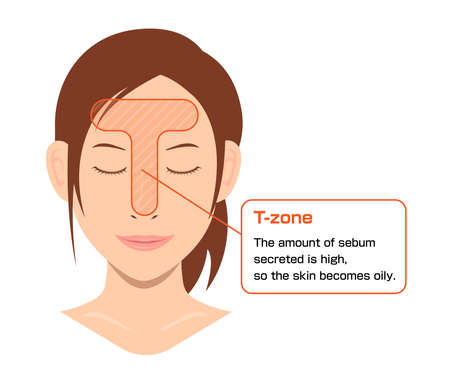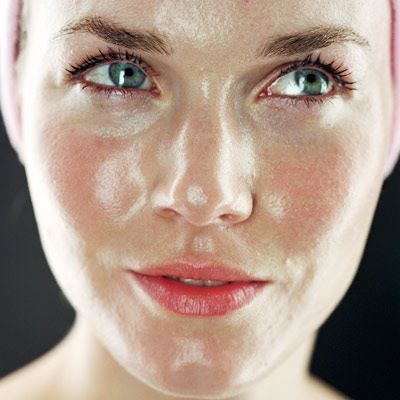Oily skin is the result of overactive sebaceous, or oil, glands. Sebum is the substance that is excreted by our pores to hydrate and lubricate the skin. However, when these glands produce too much sebum, the pores can become clogged. Having oily skin is usually associated with acne and can cause the skin to appear shiny. Ultimately, skin type comes down to genetics. In terms of aging, every skin type will age slightly differently and will have differing telltale signs. This blog post will break down any myths, and deliver the facts so that you can better understand your skin from within.
Signs of Oily Skin:
- Dilated pores
- A greasy film over the skin
- Consistent breakouts– whiteheads, blackheads,
- Thick skin
- Greasy hair
Of all the skin types, oily skin is thickest, with enlarged pores. As we age, our skin becomes thinner, resulting in sagging skin, wrinkles, and fine lines. So, oily skin does provide more of a cushion to slightly reduce these effects. However, don’t get too excited, since this does not make those with oily skin exempt from signs of aging. Oily skin just ages differently than other skin types such as dry and combination skin. In the T-Zone area (see image below), those with oily skin tend to have less wrinkles and fine lines because the skin is thicker and constantly lubricated. However, in areas of the cheeks, eyes, neck, and around the mouth where less oil is produced, similar wrinkles and signs of aging can be found across all skin types.

Treatments/ Remedies:
- Don’t skimp on the moisturizer! A common misconception about oily skin is that moisturixing it as part of a skincare routine will produce more oil. In fact, the opposite is true. If we strip our skin of external moisture, the oil glands tend to produce more oily to overcompensate.
- Avoid over-cleansing and over-exfoliation, this strips the skin of it’s natural humectant and lubricating properties
- Use SPF! Although sebum does provide more protection from harmful UV rays and free radical damage, damage from these external factors such as hyperpigmentation, uneven texture, and fine lines can still result
- Use ingredients such as salicylic acid, niacinimide, retinols, and hyaluronic acid may help maintain skin health and reduce some of the slick. However, for the most effective skincare regimen for your specific skin, seeking professional help from a dermatologist is beneficial.
Unfortunately, aging does not discriminate! No one is exempt from the natural aging process, but there certainly are ways to reduce and combat existing signs of aging. If none of the above remedies give you the results you are looking for, in-office skin treatments may be your desired route. The Divine Pyramid Facelift system stimulates and enhances the body’s natural rejuvenation processes to achieve smoother, tighter skin, improved facial contouring and a refreshed complexion. The multi-treatment platform allows specific skin concerns to be targeted at every level of the skin. While every skin type does differ, there is no one better than the other when it comes to aging. Learning what route of action is best for your own skin is the best way to youthful, healthy skin.


